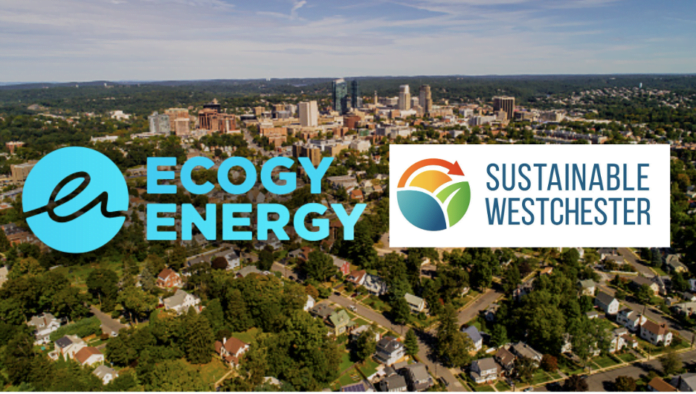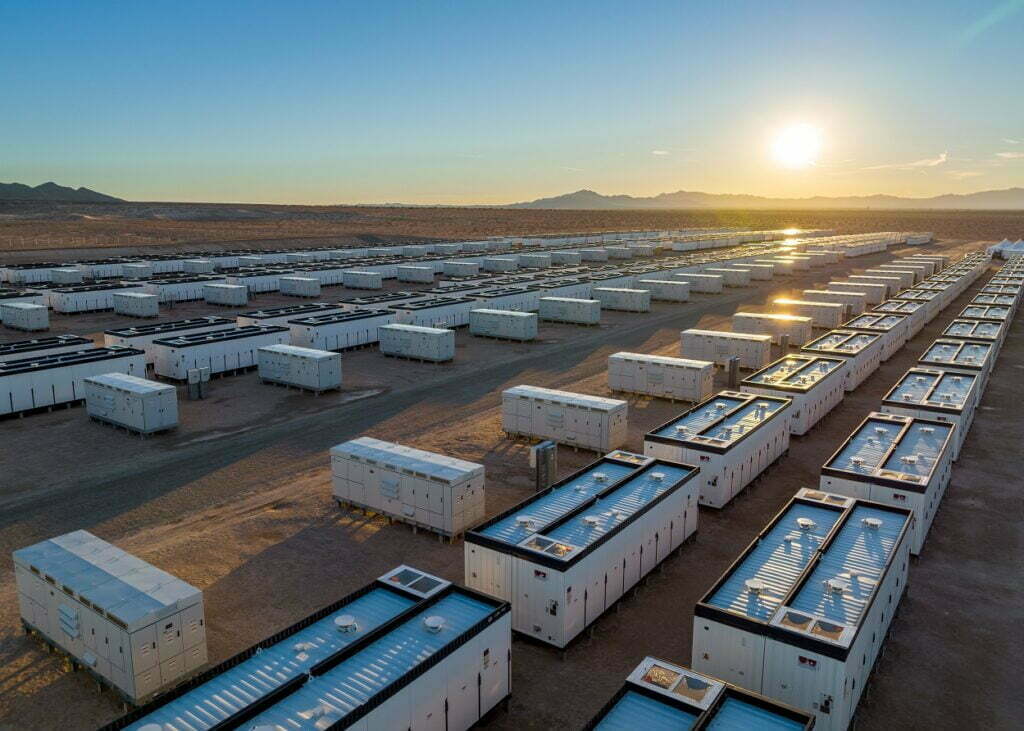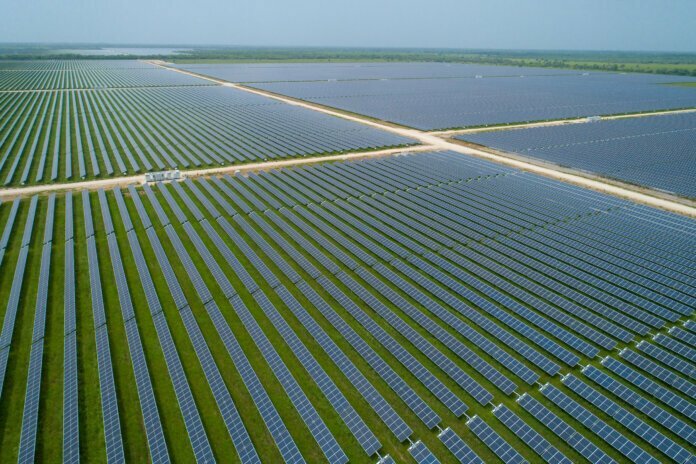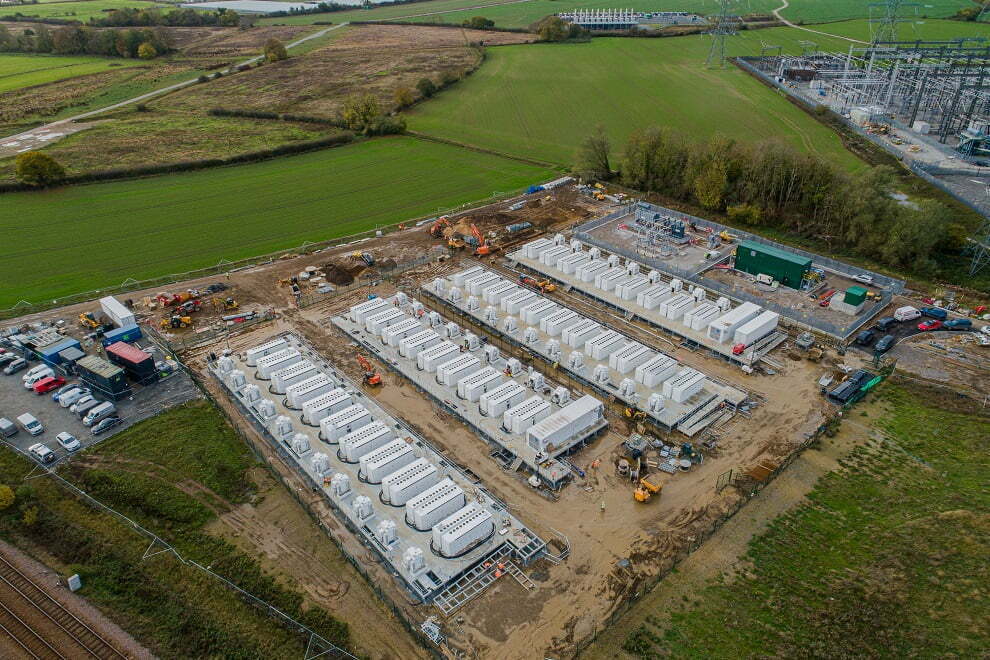Ecogy Energy, a developer, financier and owner-operator, was selected through a competitive request for proposal (RFP) in 2021 by the New York Power Authority (NYPA), in partnership with Sustainable Westchester and Westchester County, to develop solar energy projects under the Westchester Community Solar Partnership (WCSP), along with two other developers. The WCSP broadly aims to power the economic growth of New York State by supplying Westchester County residents and municipalities with locally based, ideal land-use, and discounted electricity costs through community solar projects.
Ecogy is securing preliminary agreements with the first municipality in a series of upcoming projects and has obtained approvals for a Con Edison interconnection and incentives from the New York State Energy Research and Development Authority (NYSERDA).
Sustainable Westchester, a nonprofit consortium of Westchester County local governments, is the designated community solar acquisition provider for the WCSP and will collaborate with Ecogy to enroll local residents, with a focus on affordable housing communities and low-to-moderate income (LMI) individuals. By prioritizing these groups in the development plans, NYPA, Westchester County, Ecogy and Sustainable Westchester are making large strides toward supporting environmental justice and directing benefits to historically underserved and overlooked communities.
“Many homeowners are ineligible to install solar on their homes for a host of reasons, including that they may be renting a property, have too much shade, poor roof conditions or because of financial restrictions,” says Westchester County Executive George Latimer. “However, Community Solar is designed to be accessible for all communities and residents, bringing them financial rewards and environmental improvements. We are proud and excited to be partnering with N.Y.-based Ecogy and once again with Sustainable Westchester on an innovative cost and energy-saving initiative.”
Community Distributed Generation (CDG) projects help governments and schools support renewable energy developments that benefit their communities and dismantle the inequitable distribution of renewable energy that can occur, redirecting the benefits to those who may not have the space, time, financial resources, or development experience to logistically support their own solar PV system. The WCSP will enable surrounding communities to access clean energy with a simple subscription process, no cost to sign up, no cancellation fees, and a guaranteed discount for subscribers of up to 10% on earned solar credits while offering site lease payments to those municipalities hosting the solar arrays.
The massive shift to clean energy for New York requires exactly the kind of public-private-nonprofit partnership that this project represents. Such collaborations help educate residents about the benefits of community solar, subscribe to community solar projects, and earn long-term savings from renewable energy.
“NYPA and Westchester County are actively pursuing innovative and inclusive renewable energy solutions for municipalities and communities that want to provide energy savings to their constituents,” states Justin E. Driscoll, NYPA’s interim president and CEO. “Prioritizing the underserved is a key project element we focus on as part of our role in helping to realize the state’s bold clean energy transition. Community partnerships will serve as a blueprint for renewable energy development for years to come and we are hopeful that our best-in-class examples here in New York State will serve to inspire the rest of the nation.”
“We are proud to partner with Westchester County and the New York Power Authority to bring the benefits of solar hosting to Sustainable Westchester’s municipal members and the County’s school districts,” states Nina Orville, executive director of Sustainable Westchester. “Sustainable Westchester is committed to helping Westchester County achieve New York State’s nation-leading climate and equity targets. This partnership will accelerate our achieving those goals, while building on our other successful solar initiatives.”
To finance the project, Ecogy intends to utilize N.Y.’s Value of Distributed Energy Resources (VDER) and the NYSERDA NY-Sun Incentive Program, a state initiative offering cash incentives and/or financing for the deployment of qualified solar projects to drive growth in the solar industry. The program is helping New York State advance its Climate Leadership and Community Protection Act (CLCPA) implementation targets of 10,000 MW of distributed solar PV and 70% renewable energy by 2030.
Ecogy is building upon its history of leadership in Westchester County, which includes the first community solar projects in Yorktown, Croton-on-Hudson and Ossining, and the largest solar canopy system in Westchester County with the Maryknoll Society. Sustainable Westchester worked with Ecogy to enroll community members in the Maryknoll Community Solar farm.
“Ecogy is proud to create rooftop community solar solutions for our fellow New Yorkers and continue to open doors for traditionally underserved communities upon which Ecogy has focused for the last 12 years,” states Jack Bertuzzi, Ecogy’s principal. “None of this would have been possible without the leadership of the New York Power Authority and Sustainable Westchester, who have been consistently innovative, have progressively supported initiatives that promote renewable energy, and prioritized equitable and just clean energy development.”
In coordination with the portfolio of projects, Ecogy plans to install their energy monitoring device, the Econode, which will allow every site to benchmark consumption to further drive efficiency through data-driven results and second-by-second analysis. All projects will have their data accessible, not only to municipalities and subscribers, but also to NYPA’s energy management platform, the New York Energy Manager (NYEM), helping to grow the data pool used to improve energy efficiency statewide.
Continue reading










